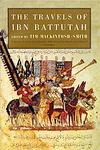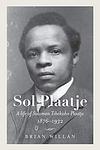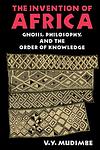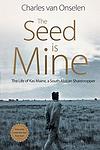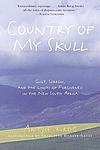Genres
The category of "History" in books refers to the study and interpretation of past events, societies, and cultures. It encompasses a wide range of topics, including political, social, economic, and cultural developments, as well as the lives of individuals and groups who have shaped the course of history. History books can be written from various perspectives and may focus on specific time periods, regions, or themes. They aim to provide readers with a deeper understanding of the past and its impact on the present.
Date Range
Reading Statistics
Click the button below to see how many of these books you've read!
Download
If you're interested in downloading this list as a CSV file for use in a spreadsheet application, you can easily do so by clicking the button below. Please note that to ensure a manageable file size and faster download, the CSV will include details for only the first 500 books.
Download-
1. Long Walk To Freedom by Nelson Mandela
"Long Walk to Freedom" is a powerful autobiography that chronicles the extraordinary life of Nelson Mandela. From his humble beginnings in a rural village to becoming the first black president of South Africa, Mandela's journey is one of resilience, determination, and unwavering commitment to justice and equality. Through his personal experiences, he provides a vivid account of the struggle against apartheid, his 27 years of imprisonment, and the eventual triumph of democracy. This book serves as an inspiring testament to Mandela's unwavering spirit and his lifelong fight for freedom and human rights.
-
2. Travels (Ibn Battúta) by Ibn Battúta
The book is a comprehensive travelogue written by a 14th-century Moroccan scholar and explorer who traveled extensively across the known world, from Africa to the Middle East, India, China, and Europe. The author shares his observations and experiences in vivid detail, offering unique insights into the diverse cultures, religions, and societies he encountered during his journeys. His accounts serve as a significant historical record of the world during the Middle Ages, providing a firsthand perspective of life during that period.
-
3. Ghana: The Autobiography Of Kwame Nkrumah by Kwame Nkrumah
This autobiography tells the story of Kwame Nkrumah, the first President of Ghana and a key figure in the country's struggle for independence from British colonial rule. Nkrumah recounts his early life, his education abroad, and his political journey, providing insights into his vision for a united and prosperous Africa. He reflects on the challenges faced during his presidency, including the economic and political obstacles that hindered Ghana's progress. Overall, this book offers a personal account of Nkrumah's life and the pivotal role he played in shaping Ghana's history.
-
4. Native Life In South Africa by Sol Plaatje
"Native Life In South Africa" is a firsthand account of the experiences and struggles of the native African population in South Africa during the early 20th century. The author, Sol Plaatje, provides a powerful and insightful narrative that sheds light on the social, political, and economic injustices faced by the indigenous people under the oppressive system of colonialism. Through his vivid descriptions and personal anecdotes, Plaatje highlights the resilience and determination of the native population in their fight for equality and justice.
-
5. Antériorité Des Civilisations Nègres by Cheikh Anta Diop
"Antériorité Des Civilisations Nègres" by Cheikh Anta Diop explores the history and achievements of African civilizations, challenging the prevailing Eurocentric narrative that downplays the contributions of African cultures. Diop presents a compelling argument for the existence of advanced African civilizations and their impact on world history, drawing on linguistic, archaeological, and anthropological evidence. Through meticulous research, he highlights the intellectual, scientific, and cultural achievements of African societies, ultimately reclaiming their rightful place in the annals of human civilization.
-
6. The History Of The Yorubas by Reverend Samuel Johnson
"The History of the Yorubas" is a comprehensive account of the rich cultural heritage and historical development of the Yoruba people, a major ethnic group in Nigeria. Written by Samuel Johnson, the book delves into the origins, traditions, and societal structures of the Yoruba, exploring their religious beliefs, political systems, and significant historical events. Through meticulous research and detailed storytelling, Johnson provides valuable insights into the Yoruba civilization, making this book an essential resource for anyone interested in African history and culture.
-
7. Facing Mount Kenya by Jomo Kenyatta
"Facing Mount Kenya" is a comprehensive study of the Kikuyu people, their history, culture, and traditions, written by Jomo Kenyatta, a prominent figure in Kenya's struggle for independence. The book explores various aspects of Kikuyu society, including their political organization, economic activities, social structure, and religious beliefs. Kenyatta's work provides valuable insights into the Kikuyu way of life and offers a critical analysis of the impact of colonialism on their society.
-
8. The Struggle For Mozambique by Eduardo Mondlane
"The Struggle For Mozambique" is a comprehensive account of the liberation struggle in Mozambique, written by Eduardo Mondlane. The book delves into the historical, political, and social context of Mozambique, tracing the country's path from Portuguese colonial rule to its fight for independence. It explores the challenges faced by the Mozambican people, the formation and evolution of the Mozambique Liberation Front (FRELIMO), and the tactics employed in their struggle against oppression. Through vivid storytelling and meticulous research, Mondlane sheds light on the resilience and determination of the Mozambican people in their quest for freedom and self-determination.
-
9. Unity And Struggle by Amilcar Cabral
"Unity And Struggle" explores the concept of national liberation and the fight against colonialism in Africa. The book delves into the importance of unity among oppressed peoples and the necessity of armed struggle to achieve true independence. Through a combination of historical analysis and personal experiences, the author emphasizes the need for a comprehensive understanding of the social, economic, and political factors that contribute to the liberation struggle. With a passionate call for solidarity and self-determination, "Unity And Struggle" serves as a powerful manifesto for those seeking freedom from oppression.
-
10. Male Daughters, Female Husbands by Ifi Amadiume
"Male Daughters, Female Husbands" is an anthropological exploration of gender roles and power dynamics within the Igbo society of Nigeria. The book challenges traditional Western notions of gender and sexuality, focusing on the concept of "female husbands" - women who assume the roles and responsibilities typically associated with men. Through extensive research and personal narratives, the author examines the historical and cultural context of these gender roles, shedding light on the complex intersections of gender, power, and identity in Igbo society.
-
11. The Invention Of Africa by V.Y. Mudimbe
"The Invention of Africa" explores the construction and representation of Africa as a continent and its people through the lens of Western knowledge and power. V.Y. Mudimbe critically examines the historical, cultural, and political processes that have shaped Africa's image, challenging the dominant narratives and highlighting the complexities and diversity of African identities. Through an interdisciplinary approach, Mudimbe deconstructs the Eurocentric gaze and invites readers to rethink their understanding of Africa and its place in the global context.
-
12. The Seed Is Mine by Charles Van Onselen
"The Seed Is Mine" is a historical non-fiction book that explores the life of a black South African named Klaas, who lived through the tumultuous years of apartheid. Through extensive research and interviews, the author delves into Klaas' personal experiences, struggles, and aspirations, shedding light on the complex dynamics of race, class, and power during this period. The book offers a poignant and intimate portrayal of one man's fight for dignity and justice amidst a system designed to suppress and oppress.
-
13. Country Of My Skull by Antjie Krog
"Country Of My Skull" is a powerful and deeply personal account of the author's experiences as a journalist covering the Truth and Reconciliation Commission in post-apartheid South Africa. Through her vivid and introspective narrative, the author explores the complexities of forgiveness, justice, and the collective healing process of a nation grappling with its painful past. This thought-provoking book offers a unique perspective on the complexities of reconciliation and the enduring impact of trauma on individuals and societies.
-
14. The Return by Hisham Matar
"The Return" is a poignant memoir detailing a man's search for his father, who disappeared in Libya's political prison system. The narrative offers a deeply personal exploration of loss, memory, and homecoming as the protagonist returns to his native country after years of living in exile. The book also provides a profound insight into Libya's turbulent history, its oppressive regime, and the devastating impact of politics on individual lives.
-
15. Cleopatra: A Life by Stacy Schiff
"Cleopatra: A Life" by Stacy Schiff is a detailed biography of one of the most famous and enigmatic figures in history, Cleopatra VII of Egypt. The book explores her life from childhood to her reign as queen, her relationships with Julius Caesar and Mark Antony, and her eventual downfall. Schiff uses primary sources and historical records to paint a vivid picture of Cleopatra's world and dispel many of the myths surrounding her life. The book also delves into the political and cultural context of ancient Egypt and Rome, providing a fascinating glimpse into a bygone era.
-
16. Interventions by Kofi Annan
This book is a compelling memoir and a detailed account of the diplomatic life of one of the world's most esteemed peacemakers. Through a series of engaging narratives, the author shares his experiences and the lessons learned during his tenure as the Secretary-General of the United Nations. He delves into the complexities of negotiating peace, fostering development, and promoting democracy across the globe, while also addressing the myriad challenges he faced, from conflicts and wars to global health crises and the fight against poverty. The author's insights into the intricacies of international diplomacy and his unwavering commitment to peace and justice make this work an invaluable resource for understanding the efforts required to sustain global harmony and security.
Reading Statistics
Click the button below to see how many of these books you've read!
Download
If you're interested in downloading this list as a CSV file for use in a spreadsheet application, you can easily do so by clicking the button below. Please note that to ensure a manageable file size and faster download, the CSV will include details for only the first 500 books.
Download
